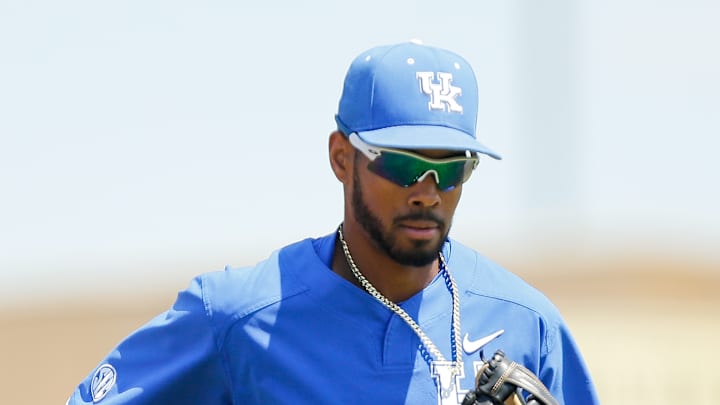In a display of overwhelming offensive power, the Kentucky baseball team trounced Lipscomb, 11-0 in just seven innings. Baseball is normally 9 innings, even at the college level, so why did this one end after 7? Enter the mercy rule. The run rule is a regulation in college baseball designed to prevent unnecessary prolongation of games where one team has very little chance to come back and win.
What is the Mercy Rule in College Baseball?
The mercy rule, sometimes referred to as the run rule, is a standard provision in college baseball, particularly at the D-1 level, to shorten games where one team has a commanding lead. Under this rule, if a team leads by 10 runs or more after seven innings, the game can be called, ending in a victory for the leading team. This rule aims to save time, protect players from further fatigue, and allow for better game management, especially in scenarios like doubleheaders or when teams face travel constraints.
How It Works
Timing: The rule typically applies after seven innings in a standard nine-inning game. If a game is scheduled for seven innings, the rule can take effect after five innings.
Conditions for Activation: The game must be a regulation game, meaning at least five full innings have been played. If the home team is in the lead when the rule could be applied, the game can end without the home team needing to bat in the bottom of the seventh but the fifth has to be completed.
Exceptions: This rule isn't used universally across all games or tournaments. For instance, it's not typically applied in NCAA tournament games or high-stakes matches like the College World Series, where they want to give teams all the chances in the world to keep their season going.
Kentucky vs. Lipscomb
In the matchup against Lipscomb, Kentucky's bats came alive early and often, piling up runs. The Wildcats showcased their depth leading to an insurmountable 11-run lead by the end of the seventh inning. With Lipscomb unable to respond effectively, the umpires called the game under the mercy rule, securing a swift and decisive victory for Kentucky.
Impact on the Game
Player Health: By ending the game early, players on both teams are spared additional play, reducing the risk of injury, especially in scenarios where pitching changes or long innings could have been necessary.
Game Management: Coaches can manage their pitching staff more effectively, preserving arms for subsequent games rather than risking overexertion in a blowout.
Fan Experience: For spectators, especially at home venues, the mercy rule can turn a potentially long, one-sided game into a brisk showcase of team dominance, keeping the atmosphere lively and the focus on the next event.
Kentucky's 11-0 drubbing of Lipscomb in merely seven innings not only highlighted their offensive capabilities but also demonstrated the practical application of the mercy rule in college baseball. This rule serves as a reminder of the sport's respect for player welfare. The Cats will be back in action Friday, pending the weather, which forced a midweek game reschedule already.
